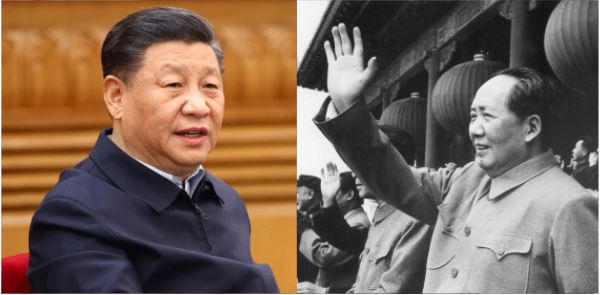The Chinese Communist Party (CCP) is now literally harking back to Mao’s era. Now, the party is reinventing Mao’s Cultural Revolution, which had claimed as many as 1.7 million lives between 1966 and 1976.
Mao’s Cultural Revolution was a large scale initiative that punished citizens with death or rigorous labour for committing ‘political crimes’. Interestingly, the Cultural Revolution was more citizen-centric than party-dominated. Sometimes, family members reported an individual’s anti-party behaviour. And then there were the Red Guards, a bunch of youngsters, who repudiated their teachers as “Capitalists”. Now, Xi Jinping’s CCP is looking at a similar system for reporting anti-party behaviour in cyberspace.
China’s cyber regulator is encouraging Chinese citizens to spy on each other. The idea is to encourage citizens to report online speech critical of the ruling CCP or its official historical narrative. The CCP is running this online campaign ahead of the 100th anniversary of its foundation.
In fact, the Cyberspace Administration of China posted a notice about a new hotline. Citizens can use it in order to report people who make defamatory remarks about the CCP, Chinese political leaders, government policies, national heroes or “deny the excellence of advanced socialist culture.”
The Chinese cyber regulator has vowed to crack down on such people ahead of the CCP’s centennial birth anniversary in July. The regulator said that people online “with ulterior motives” were “maliciously distorting, denigrating and negating the history of the Party.”
So, Xi Jinping is effectively looking at an online Cultural Revolution. Citizens would be hunting down others who criticise the CCP on social media, and then the CCP would crack down on such deviant individuals ruthlessly.
Till now, the Chinese government censors were focused on foreign news and online information. They used to block such content ahead of historical anniversaries, political meetings and sporting events, which the CCP considered objectionable.
However, things have now started changing. The CCP is now targeting individuals who dare to criticise it, its leaders, policies or ‘official’ history. Individuals who get critical of the CCP, whether in private messages online or in public social media posts, are frequently subjected to detentions without even being afforded a trial. Also, there are cases in which individuals are blacklisted as troublemakers, which ultimately hurts their employability and ability to procure loans.
Similarly, Chinese tech firms are subjected to penalties if they fail to block content that the CCP does not like. Ultimately, the CCP would want to use the censors of Chinese tech firms to hunt down critics in the society and take them to the task.
There have been several cases where Chinese authorities actually cracked down on individuals for their online remarks. Last week, authorities in Jiangsu province detained a man for allegedly making “insulting” comments about the 1937 occupation of Nanjing by the Imperial Japanese Army.
So, the CCP is preparing a mass purge against people who criticise it on social media. The stage is thus set for what can be described as a re-enactment of Mao’s Cultural Revolution in China.








